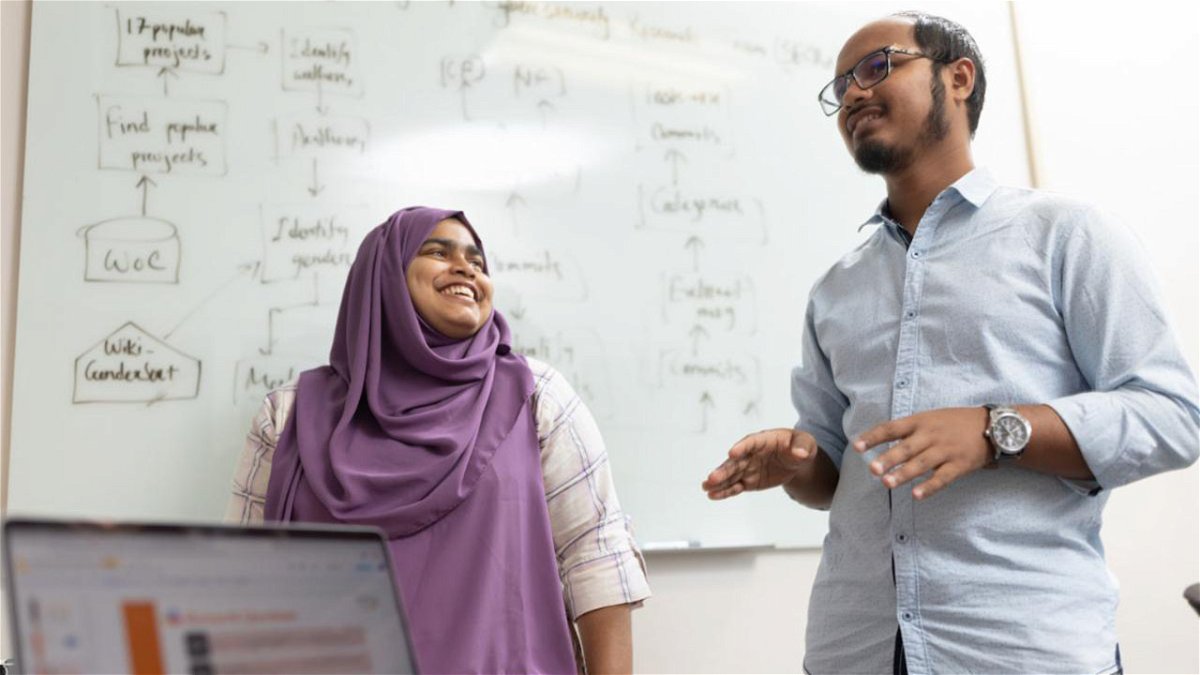1 in 20 programmers on open-source software projects are women, ISU study says

POCATELLO, Idaho (KIFI) – Every day, millions of updates are being made to open-source software projects by programmers across the globe. A new analysis by Idaho State University computer scientists has found only a handful of those changes are being made by women.
During the last six months, graduate students Arifa Islam Champa and Md Fazle Rabbi, along with Minhaz Zibran, associate professor, have been looking into the gender makeup of developers across the 17 programming languages found in the World of Code dataset. After identifying the most popular project in each language, they used the Wiki-Gendersort, a gender detection algorithm that uses first names to determine a developer's gender with more than 97 percent accuracy. Through the algorithm, they determined that out of the 10,898 unique programmers identified, just under 5% were female. The algorithm labeled a little over 1.5% of programmers as unisex or unknown.
“Women and men have different ways of approaching a problem and devising a solution,” Champa said. “Other studies have shown that diverse teams outperform their homogeneous counterparts in a variety of ways with higher levels of productivity, innovation, and overall success. Therefore, it is extremely important to increase women’s participation in software engineering projects.”
From there, the team focused on the average number of commits - changes to a project’s code - made by each developer. The team found women made nearly half as many commits to a project as their male counterparts. Female contributors average 11.85 commits per person on a project versus 23.20 for a male contributor. In total, 20,997,331 commits were analyzed.
“The data is telling us that women participating and contributing to open-source software projects is extremely low compared to men, although women constitute roughly half of the world’s population,” Rabbi said.
In May, the study was presented by Zibran at the International Conference on Mining Software Repositories held in Melbourne, Australia. The paper was also co-authored by Rakibul Islam, assistant professor at the University of Wisconsin - Eau Claire, and will be published in the Institute of Electrical and Electronics Engineers’ Xplore digital library.
“This research also found that compared to men, women contribute substantially less in writing source code irrespective of the categories of development tasks they are assigned,” Zibran said. “In the future, we would like to do an in-depth investigation into why this happens and how we can enhance female contributions in software engineering and other computing fields.”






